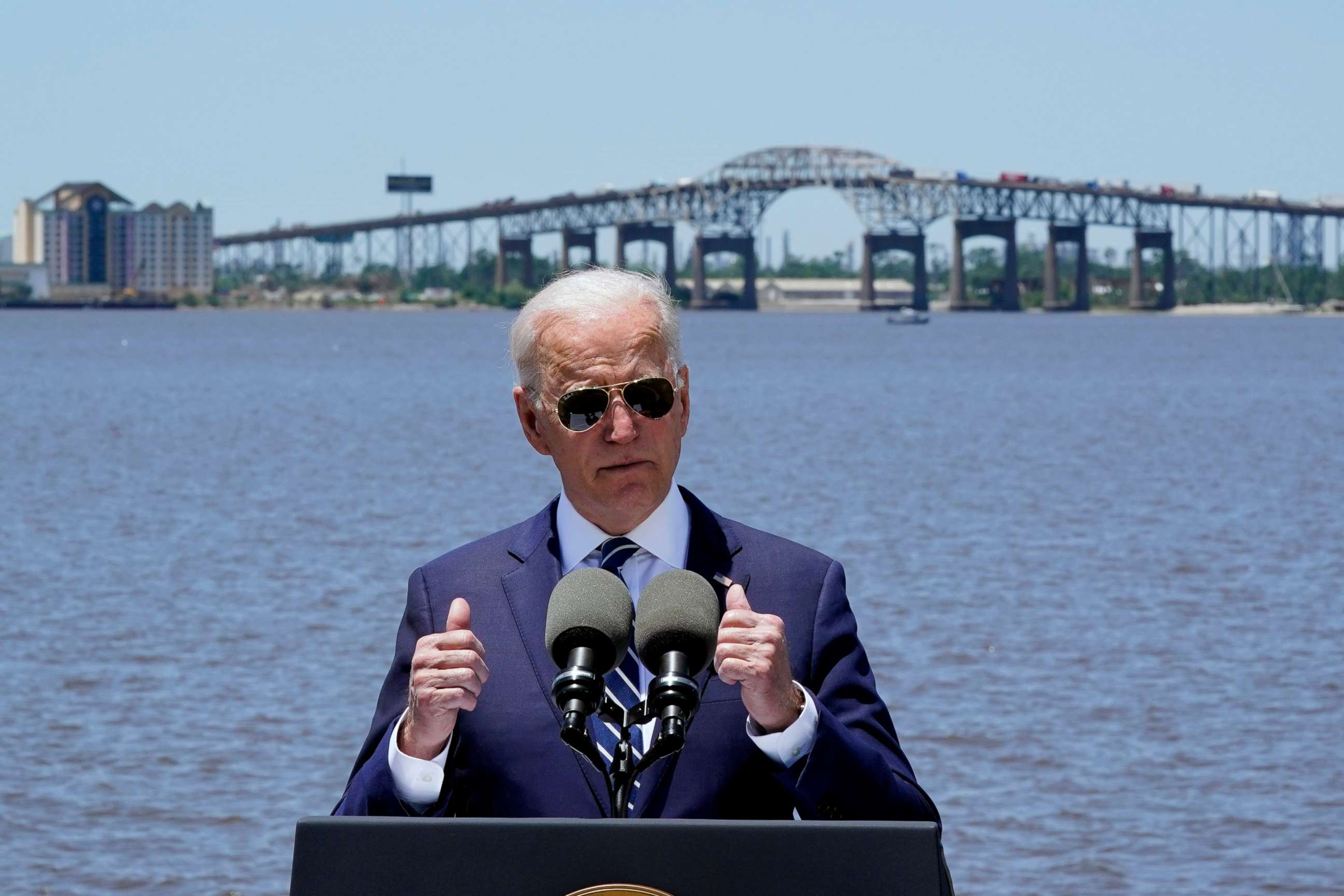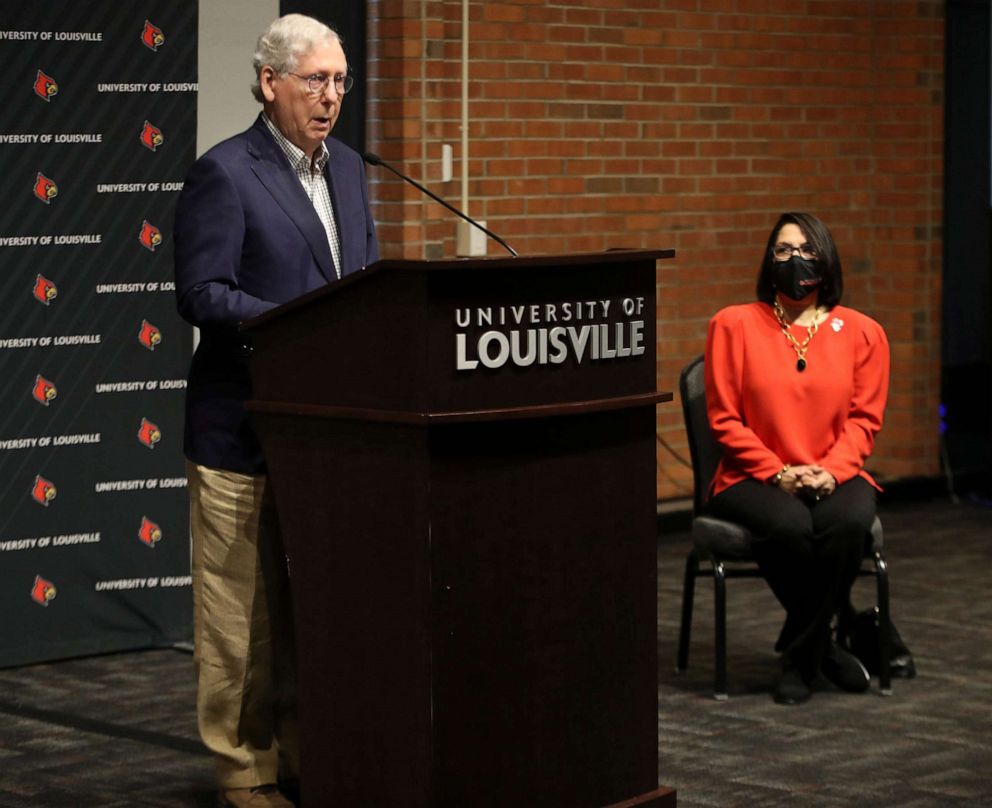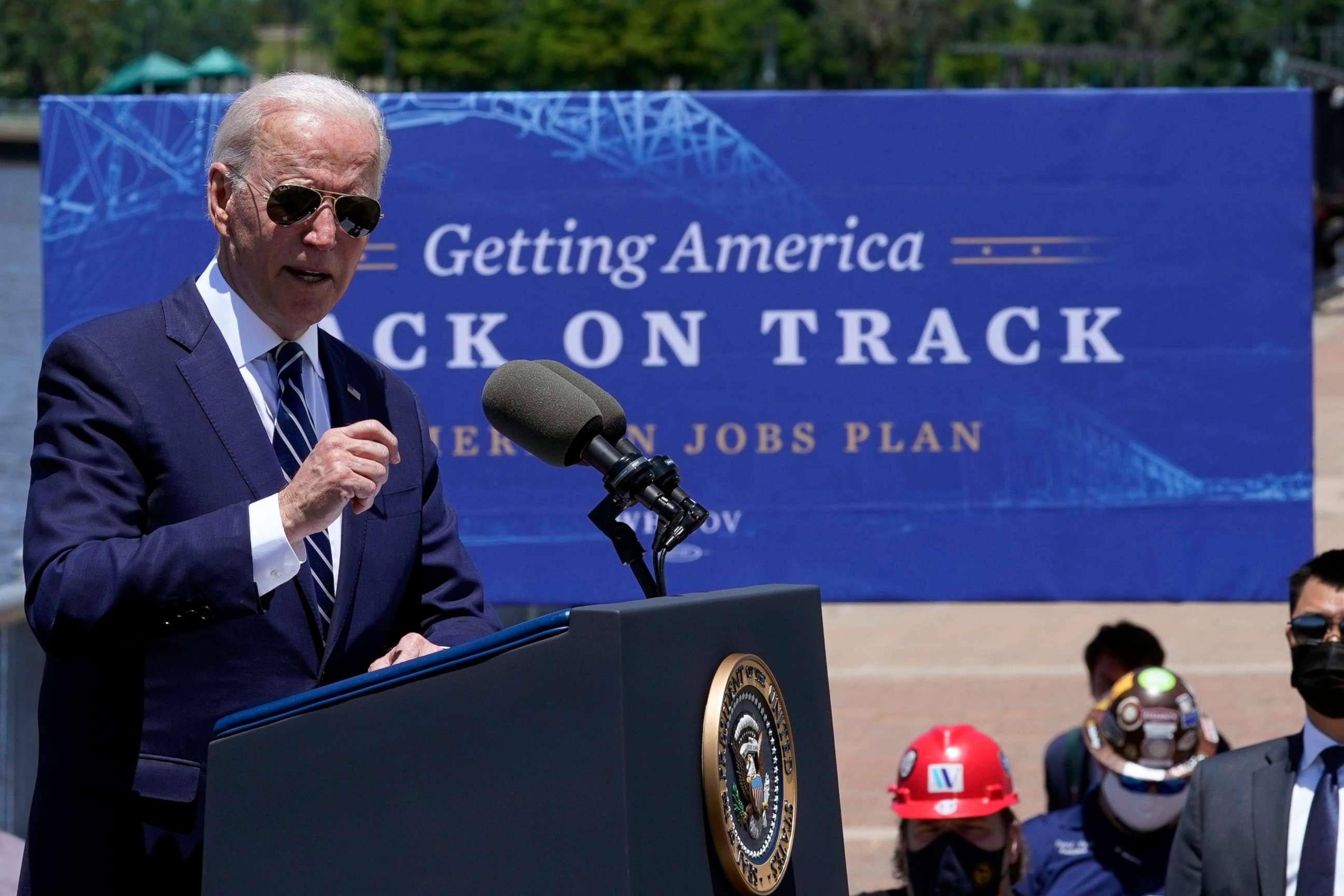Biden still 'ready to compromise' with GOP on infrastructure despite McConnell comments
The president said he wants to hear "from both sides" on infrastructure plans.
Standing before an aging bridge in Lake Charles, Louisiana, Thursday afternoon, President Joe Biden once again said he's ready to work across the aisle with Republicans to pass his $2.3 trillion infrastructure-focused American Jobs Plan.
"I’m willing to hear ideas from both sides," Biden said. "I’m ready to compromise. What I’m not ready to do, I’m not ready to do nothing. I’m not ready to have another period where America has another infrastructure month and doesn't change a damn thing."
He will likely get his next chance when he's expected to meet with Senate Minority Leader Mitch McConnell and House Minority Leader Kevin McCarthy next Wednesday at the White House, along with Senate Majority Leader Chuck Schumer and House Speaker Nancy Pelosi.
The meeting would mark the first time he'll host the congressional GOP leadership, but recent McConnell comments suggest it could raise questions among congressional Democrats about whether Biden's willingness to compromise to get a deal done is misguided.

While McConnell on Thursday seemed slightly more open to working with the president, just the day before he said was entirely focused on derailing Biden's agenda.
"My view at the moment is we need to turn this administration into a moderate administration," McConnell said Thursday in Kentucky. "I'm still hoping the administration will pivot to a more centrist position and that's where I'm spending my time and focus."
But on Wednesday he said that "100 percent of my focus is on stopping this new administration."
"I think the best way of looking at what this new administration is - the president may have won the nomination, but Bernie Sanders won the argument about what the new administration should be like. We are confronted with severe challenges from the new administration and a narrow majority in the House and a 50-50 Senate to turn American into a socialist country, and that's 100% of my focus."

His initial comments were dismissed and met with a laugh from Biden when he was asked to respond Wednesday afternoon, saying he’s been on familiar ground with McConnell.
"He said that in our last administration, Barack [Obama], he was going to stop everything, and I was able to get a lot done with him," Biden told reporters in the White House State Dining Room.
During the 2010 mid-term elections, McConnell said "the single most important thing we want to achieve is for President Obama to be a one-term president" and often used the filibuster to block much of Obama's agenda.
The war of words between McConnell and Biden comes as the president, Vice President Kamala Harris and other high-profile administration officials are traveling across the country to sell the president’s American Jobs Plan and his American Families Plan.

Republicans have criticized the cost of the scope of Biden’s infrastructure proposal, costing $2.3 trillion alone, and his plan to pay for it with a corporate tax rate hike from its current 21% to 28% and also raising the capital gains tax for those making over $1 million to 39.6%.
The president’s plan to raise corporate taxes has also been met with opposition from within his own party. Democratic Sen. Joe Manchin, D-W.Va., has said he believes it should be raised to 25% instead, something Biden says he is willing to negotiate.
Republicans have proposed their own scaled down $568 billion infrastructure plan, something McConnell on Thursday branded as a “bipartisan alternative.”
"I think the administration will probably think of this as plan B," McConnell said, adding that he thinks Democrats will consider the proposal only if their attempts at using reconciliation to pass the larger package fail.
"I'm hoping that if the Democrats are unable to pass this new $4.1 trillion dollar bill they'll sit down with us and talk about passing an infrastructure bill," he said. "If they aren't able to get everybody behind this massive proposal than I think we've got a real chance to do something important on a bipartisan basis."




